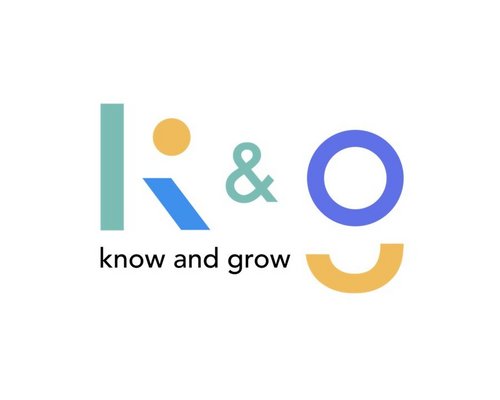
Enhancing Healthcare Education for Children with Rare Metabolic Disorders
Rare metabolic disorders, such as phenylketonuria (PKU), galactosaemia, and maple syrup urine disease, pose significant challenges not only for affected children but also for their families and healthcare providers. These conditions, characterized by various clinical symptoms and potential severity, require ongoing management and specialized medical care. Recognizing the importance of early detection and continuous support, SRH University Heidelberg has initiated innovative projects aimed at improving education and self-management for young patients with these rare diseases.
In partnership with Charité-Universitätsmedizin Berlin, SRH University Heidelberg is developing tailored educational tools that address the unique needs of children and adolescents at different developmental stages. This initiative aims to empower young patients through age-appropriate information, engaging methods, and digital solutions, ultimately enhancing their understanding of their condition and adherence to treatment protocols. For parents, caregivers, and healthcare teams, such resources can facilitate better communication, understanding, and management strategies, ensuring optimal health outcomes.
Creating Age-Appropriate Educational Materials for Metabolic Disorders
The diversity in age and cognitive development among children necessitates customized educational approaches. SRH University Heidelberg and its partners are designing materials that suit different age groups, ensuring that information is accessible, comprehensible, and engaging at every stage of childhood and adolescence.
Educational Tools for Young Children (0-5 years)
For the youngest patients, education focuses on simple, visual, and playful formats. An example is the board game “Alex’s Special Journey Through the Body,” which guides children through the process of understanding their illness using quiz questions and action cards. Such interactive play not only teaches about the disease but also helps reduce anxiety and foster a sense of control.
Materials for Primary School Children (6-12 years)
Children in this age group can handle more detailed information. SRH University Heidelberg has developed an animated film and a colorful information magazine that explain metabolic disorders and their management in a clear yet engaging manner. These resources aim to enhance understanding of the disease process, the importance of dietary restrictions, and medication adherence, encouraging children to cooperate actively in their health care.
Supporting Adolescents and Young Adults (13-18 years)
Adolescents seek independence and often prefer digital and interactive tools. To accommodate this, SRH University Heidelberg has developed a dedicated health app that allows young patients to input their medication schedules, dietary supplements, and contact details for healthcare providers. The app also offers practical features such as shopping tips, prescription reminders, and access to educational content, making it easier for young individuals to manage their condition confidently and independently.
Contributions of Digital Innovations and Interdisciplinary Collaboration
The integration of digital solutions like mobile apps signifies a step forward in personalized healthcare. These tools are developed with input from both medical professionals and design experts, ensuring that they meet the real needs of young patients. Interdisciplinary workshops facilitate this collaboration, combining medical expertise with design thinking to produce intuitive and effective educational resources.
Additionally, these materials are tested and refined within clinical settings such as the outpatient clinic for metabolic diseases at Charité. This ongoing feedback loop between practice and innovation guarantees the relevance, usability, and impact of the educational tools.
Expanding Reach for Broader Impact
While initial developments focus on specific metabolic disorders, there are plans to extend these educational materials to include other rare conditions. The projects benefit from funding and support from organizations like Milupa/Nutricia Metabolics and Berliner Sparkassenstiftung Medizin, ensuring continuity and expansion until at least 2026.
By translating resources into English and employing design thinking across disciplines, SRH University Heidelberg strives to create globally relevant tools that enhance disease management and improve quality of life for affected children around the world.
Implications for Healthcare and Education
The innovative approach led by SRH University Heidelberg exemplifies how modern healthcare education can be transformed through interdisciplinary collaboration, digital technology, and age-specific content. Such initiatives have the potential to serve as models for other healthcare challenges involving rare diseases or chronic conditions requiring ongoing education and self-management.
Healthcare professionals, educators, and policymakers can learn from these projects to develop comprehensive, patient-centered strategies that bridge clinical care and everyday life, fostering resilience and autonomy among young patients.
Take Action: Supporting Education in Rare Metabolic Disorders
If you are interested in learning more about advancements in children’s healthcare education or wish to explore similar innovative programs, consider engaging with universities and research institutions like SRH University Heidelberg. Supporting such initiatives can make a tangible difference in the lives of children with rare diseases and their families.
Discover how interdisciplinary efforts can revolutionize healthcare communication and support by visiting the Know & Grow project website.
Parents, caregivers, and healthcare providers are encouraged to share their feedback and experiences to help tailor future educational materials, ensuring they meet evolving needs effectively.
In conclusion, SRH University Heidelberg is at the forefront of transforming healthcare education for children with rare metabolic disorders, blending medical expertise with innovative design and digital technology to foster better health management, independence, and well-being.


